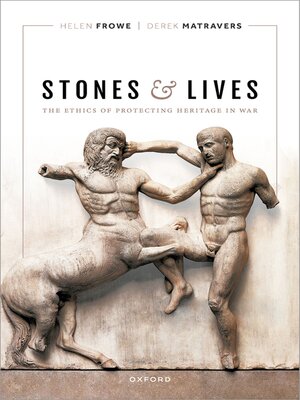
Sign up to save your library
With an OverDrive account, you can save your favorite libraries for at-a-glance information about availability. Find out more about OverDrive accounts.
Find this title in Libby, the library reading app by OverDrive.



Search for a digital library with this title
Title found at these libraries:
| Library Name | Distance |
|---|---|
| Loading... |
The fate of heritage in war has attracted considerable attention in recent years, due in no small part to ISIS's campaign of destruction across the Middle East and, in 2012, the International Criminal Court's first prosecution of heritage destruction as a war crime. Regular armed forces have been criticised for both failing to protect and damaging heritage sites. In response, heritage organisations urge the better implementation of existing international laws on heritage protection in war. This book argues that any such law or policy will require combatants to choose between safeguarding heritage and safeguarding other goods, including human life. It thus challenges the view, repeatedly expressed by heritage professionals, that the choice between protecting heritage and protecting lives is a false dichotomy. Existing international law not only implies such choices but also, more worryingly, gives no indication of how they should be resolved. Drawing on contemporary work on the ethics of war, this book develops an account of the permissible protection of heritage in war. It argues that heritage is not morally special; rather, heritage is one of many goods that contribute to individuals' lives going well and that we routinely trade off against each other. By drawing on these more familiar dilemmas, we can make progress on how to balance the protection of heritage against risks to human life. Amongst other things, the book considers the different ways in which heritage might contribute to individual flourishing, the role of consent in justifying the imposition of risk on combatants and civilians, the permissibility of forcefully defending heritage and what, if anything, could compensate for the loss of heritage in war.







